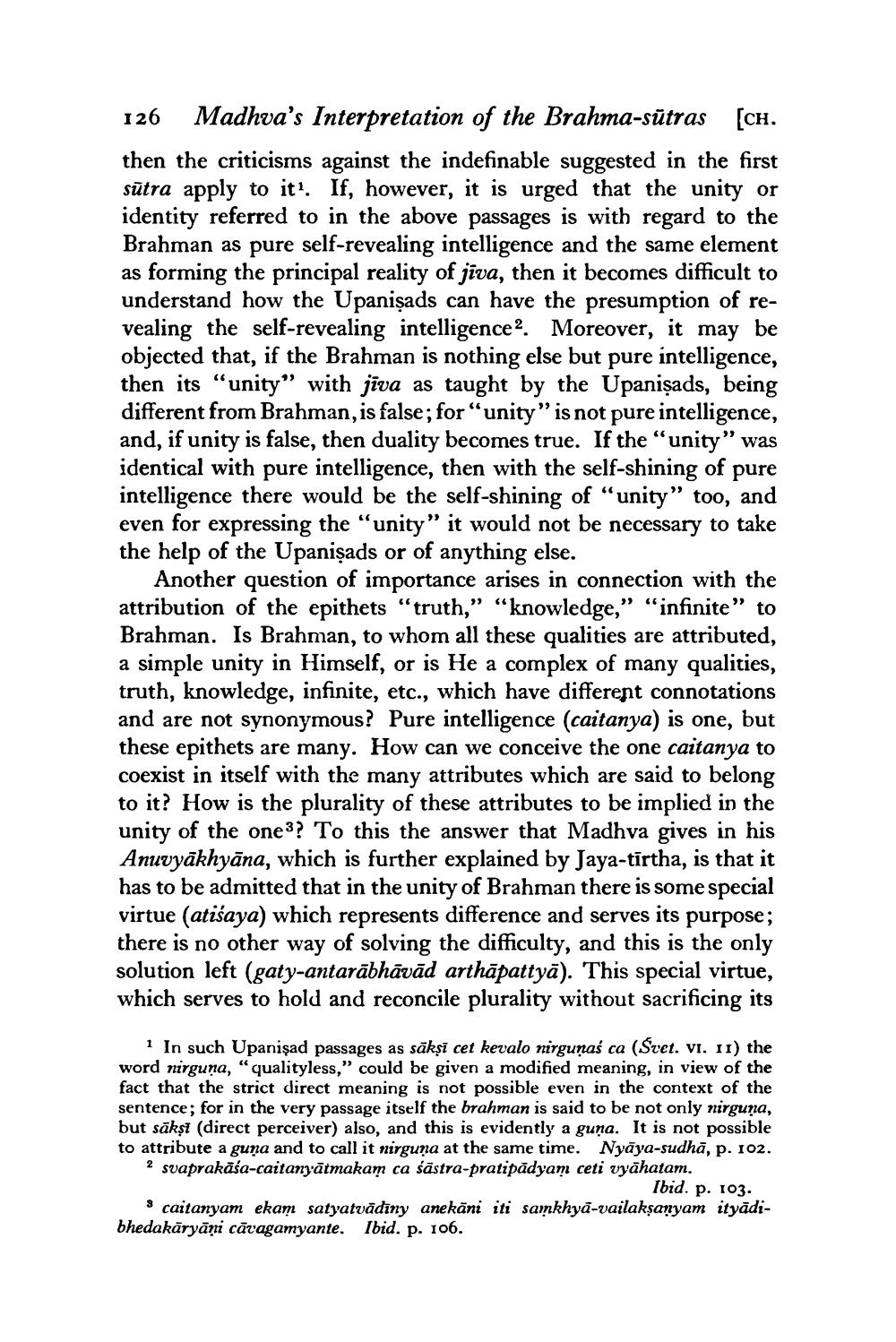________________
126
Madhva's Interpretation of the Brahma-sūtras [CH.
then the criticisms against the indefinable suggested in the first sūtra apply to it. If, however, it is urged that the unity or identity referred to in the above passages is with regard to the Brahman as pure self-revealing intelligence and the same element as forming the principal reality of jiva, then it becomes difficult to understand how the Upanisads can have the presumption of revealing the self-revealing intelligence 2. Moreover, it may be objected that, if the Brahman is nothing else but pure intelligence, then its "unity" with jiva as taught by the Upaniṣads, being different from Brahman, is false; for "unity" is not pure intelligence, and, if unity is false, then duality becomes true. If the "unity" was identical with pure intelligence, then with the self-shining of pure intelligence there would be the self-shining of "unity" too, and even for expressing the "unity" it would not be necessary to take the help of the Upanisads or of anything else.
Another question of importance arises in connection with the attribution of the epithets "truth," "knowledge," "infinite" to Brahman. Is Brahman, to whom all these qualities are attributed, a simple unity in Himself, or is He a complex of many qualities, truth, knowledge, infinite, etc., which have different connotations and are not synonymous? Pure intelligence (caitanya) is one, but these epithets are many. How can we conceive the one caitanya to coexist in itself with the many attributes which are said to belong to it? How is the plurality of these attributes to be implied in the unity of the one3? To this the answer that Madhva gives in his Anuvyākhyāna, which is further explained by Jaya-tirtha, is that it has to be admitted that in the unity of Brahman there is some special virtue (atisaya) which represents difference and serves its purpose; there is no other way of solving the difficulty, and this is the only solution left (gaty-antarābhāvād arthāpattyā). This special virtue, which serves to hold and reconcile plurality without sacrificing its
1 In such Upanisad passages as sākṣi cet kevalo nirgunaś ca (Śvet. VI. 11) the word nirguna, "qualityless," could be given a modified meaning, in view of the fact that the strict direct meaning is not possible even in the context of the sentence; for in the very passage itself the brahman is said to be not only nirguna, but sākṣt (direct perceiver) also, and this evidently a guna. It is not possible to attribute a guna and to call it nirguna at the same time. Nyaya-sudhā, p. 102.
2 svaprakāśa-caitanyātmakam ca śāstra-pratipadyam ceti vyahatam.
Ibid. p. 103.
3 caitanyam ekam satyatvadiny anekāni iti samkhya-vailakṣaṇyam ityādibhedakaryāni cavagamyante. Ibid. p. 106.




